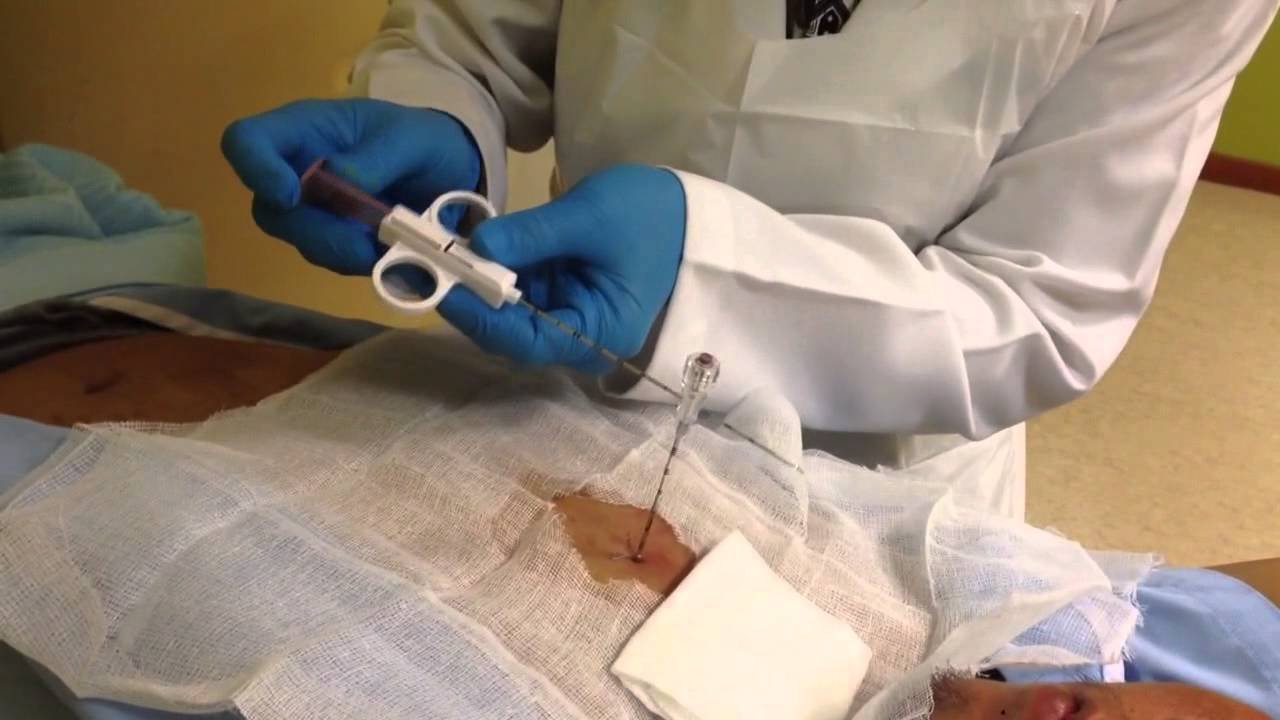
CT-Guided Percutaneous Lung Biopsy
A CT-guided percutaneous lung biopsy is a minimally invasive procedure used to obtain a tissue sample from the lungs. This biopsy is performed with the assistance of CT imaging to precisely locate the area of interest within the lung for sampling.
1. What is CT-Guided Percutaneous Lung Biopsy?
CT-guided biopsy allows the doctor to guide a needle through the skin and into the lung to take a sample. This technique provides real-time imaging, ensuring accurate targeting of the lesion.
- Benefits: Minimally invasive, high accuracy, quick recovery, useful for diagnosing lung diseases, infections, or cancers.
2. Why Is It Performed?
This procedure is commonly performed when there is a suspicion of lung cancer, infection, or other abnormal growths in the lungs. It provides a tissue sample that can be analyzed to determine the cause of abnormalities seen on imaging tests.
3. Preparing for the Procedure
Before the procedure, patients are advised to avoid certain medications like blood thinners and to fast for a few hours. It's important to share your medical history and current medications with the healthcare provider.
- Precautions: Patients with bleeding disorders or severe lung disease may need special preparation.
4. Procedure Overview
- CT Guidance: The procedure is performed under local anesthesia while using a CT scanner to guide the biopsy needle.
- Sampling: A small tissue sample is collected from the lung lesion or mass.
- Duration: The procedure typically lasts 30 to 60 minutes, followed by a few hours of observation.
5. Risks and Complications
- Pneumothorax: The most common complication is a collapsed lung, which may require treatment.
- Bleeding: There is a small risk of bleeding at the biopsy site.
- Infection: Although rare, infections may occur and require antibiotic treatment.
6. Recovery and Aftercare
After the biopsy, you will be monitored for a few hours to ensure there are no complications, such as bleeding or a pneumothorax. Most patients can return to normal activities the next day, although strenuous activities should be avoided for a short period.
7. Results and Follow-Up
- Analysis: The biopsy sample is sent to a pathology lab to determine the presence of cancer cells, infection, or other lung diseases.
- Follow-up: Your doctor will schedule a follow-up to discuss the results and potential treatment options based on the findings.
Expert Lung Biopsy at Dr. R. Aditya Vadan’s Clinic
At Dr. R. Aditya Vadan’s clinic, our experienced team provides expert care for lung biopsies and comprehensive follow-up consultations. Using state-of-the-art technology, we ensure precision in diagnosis and a focus on patient comfort throughout the procedure.
For consultations or to schedule a biopsy, contact us at 9063564499, 95507 77000.